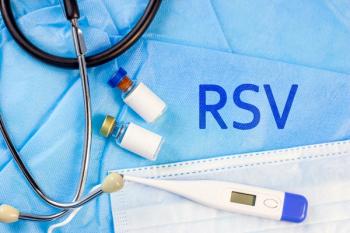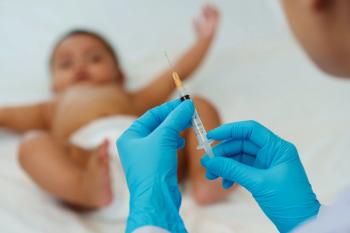
Majority of Infants in ICU for RSV Have No Underlying Health Conditions
A recent study found that Infants younger than 3 months, those born prematurely, and those who were publicly insured were at a higher risk for intubation.
Most infants who were admitted to intensive care units for an infection with the respiratory syncytial virus (RSV) were previously healthy and had no underlying conditions, according to recent data published in JAMA Network Open.1
RSV is the leading cause of respiratory-related hospitalizations in infants across the world, with 57000 annually in children younger than 5 in the United States. The virus is the main cause of hospitalizations in the first year of life, and 1 in 5 children hospitalized for RSV are admitted into the ICU.1
Unusual surges in RSV infections during 2021 and 2022 were the result of disrupted circulation patterns caused by the COVID-19 pandemic. In an effort to evaluate infants admitted to the ICU due to RSV during 2022, researchers from the Vanderbilt University Medical Center conducted a study evaluating clinical characteristics and outcomes of critical illness during peak transmission.
Data was gathered from a public health prospective surveillance registry, which included 39 pediatric hospitals across 27 different states. The study cohort included 600 infants who were admitted to an ICU with RSV in 1 of the hospitals between October 17 and December 16 during the peak of the 2022 RSV season.
Main outcomes included clinical characteristics, signs and symptoms, and clinical outcomes, such as receipt of noninvasive respiratory support, invasive mechanical ventilation, and death.
Investigators found that, of the infants admitted to the ICU, the median age was 2.6 months, 60.2% were male, 28.9% were born prematurely, and 82.1% had no underlying medical conditions. The most common reasons for being admitted to the ICU included lower respiratory tract infection, and apnea or bradycardia.
Additionally, 143 infants received invasive mechanical ventilation and 243 required high-flow nasal cannula. Infants younger than 3 months, those born prematurely, and those who were publicly insured were at higher risk for intubation.
“Most of the infants in our study receiving ICU-level care were young, healthy and born at term,” Natasha Halasa, MD, lead author on the study, said in a release.2 “Although mortality was rare, our findings emphasize the significant illness caused by RSV in young infants.”
Study limitations include a limit on the influence of single centers or regions, not including all cases of severe RSV admitted to the ICU during the study period, potential for missed RSV cases due to only including clinician-ordered, laboratory-confirmed RSV cases, and only half of participants being tested with a respiratory viral panel.
“We hope that our study findings will aid in the design of future RSV prophylactic and maternal RSV vaccine effectiveness and usage studies and recommendations,” said Halasa.2
References
1. Halasa N, Zambrano LD, Amarin JZ, et al. Infants Admitted to US Intensive Care Units for RSV Infection During the 2022 Seasonal Peak. JAMA Netw Open. 2023;6(8):e2328950. doi:10.1001/jamanetworkopen.2023.28950
2. Study finds most infants receiving ICU-level care for RSV had no underlying medical condition. News Release. Vanderbilt Medical Center. August 15, 2023. Accessed on August 21, 2023. https://news.vumc.org/2023/08/15/study-finds-most-infants-receiving-icu-level-care-for-rsv-had-no-underlying-medical-condition/
Newsletter
Pharmacy practice is always changing. Stay ahead of the curve with the Drug Topics newsletter and get the latest drug information, industry trends, and patient care tips.























